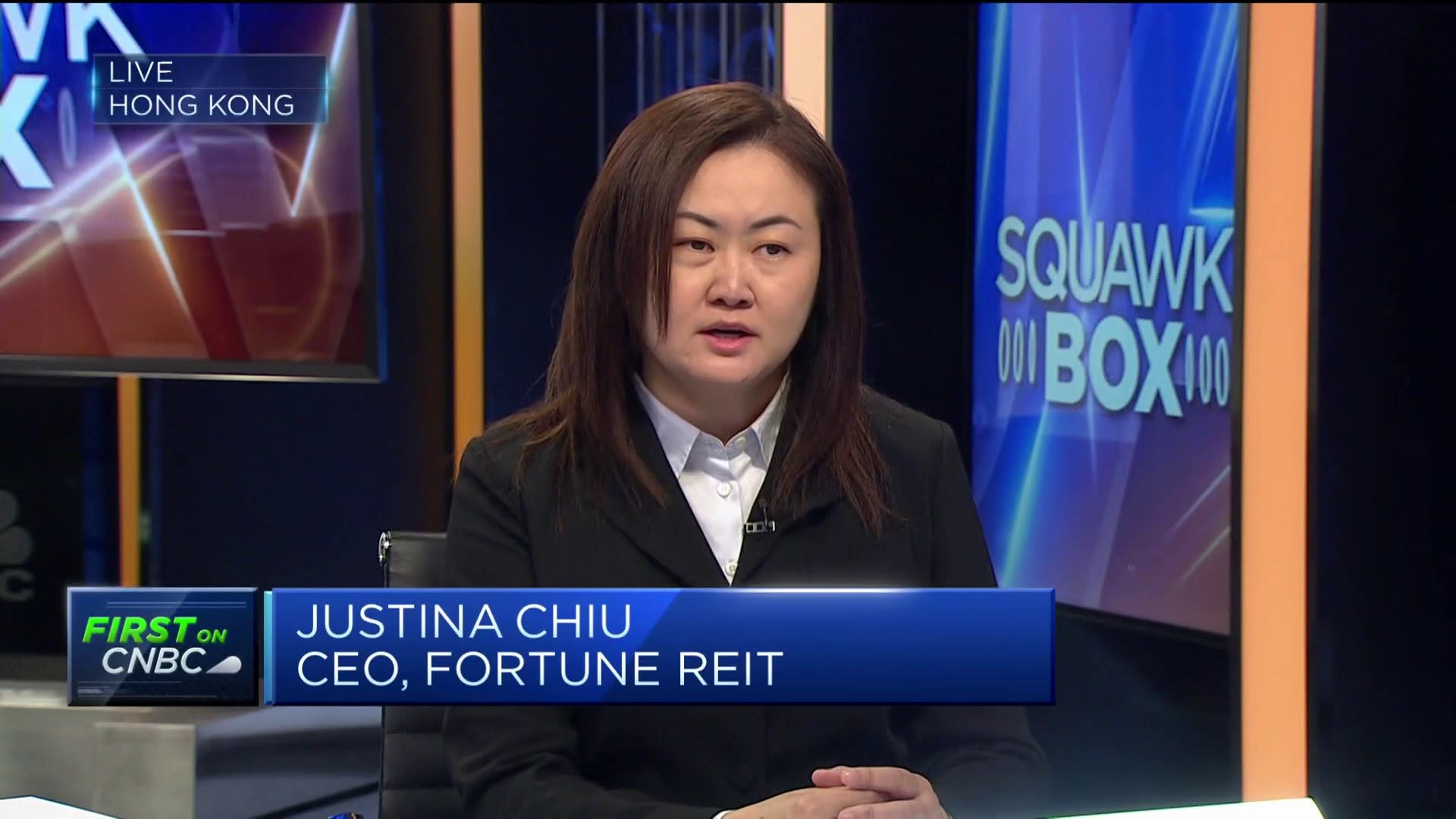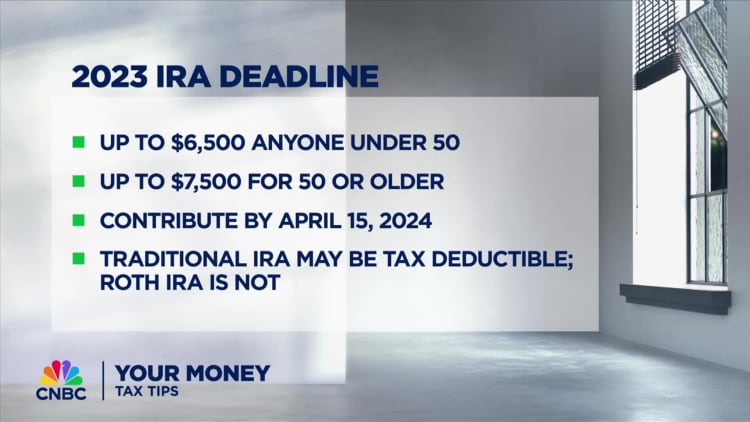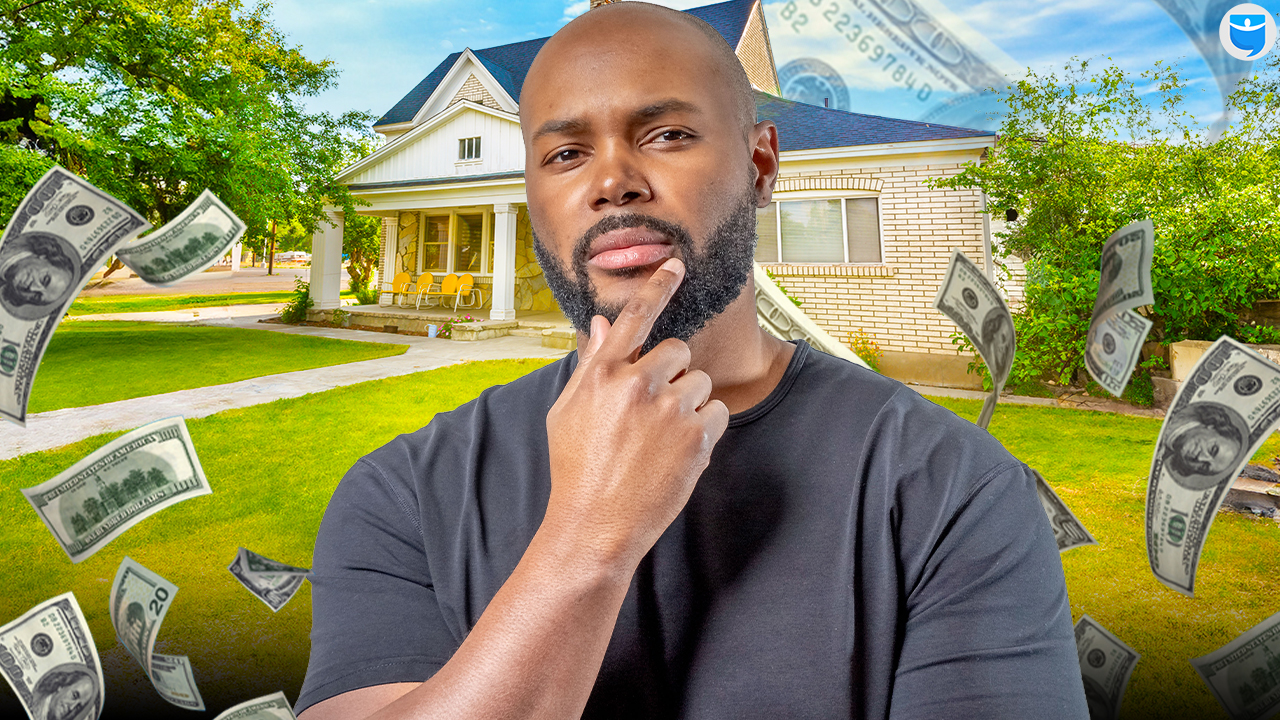Ashley:
This is Real Estate Rookie, episode 377. We’re going to hear about losing $40,000 from a partnership and then talk about what are the things you need to consider when getting into a partnership. Then Tony also mentions which fast food napkins work best for contracts. I’m Ashley Kehr, and I am joined with my co-host, Tony J. Robinson.
Tony:
Welcome to the Real Estate Rookie podcast, where every week, three times a week, we bring you the inspiration, motivation, and stories you need to hear to kickstart your investing journey. We’ve got some great questions lined up for you today. We’re going to cover what to do when a tenant absolutely trashes your property, what a HELOC is, and how it impacts your credit score, but first, we’re being joined alive by someone from the Rookie audience who wants to ask a question to me and Ashley, and he’s coming live from Miami.
Ashley:
Miami-yami-yami.
Tony:
For those of you who don’t know, that’s the famous Will Smith song, and Ashley is dying to sing that one for the Rookie audience today.
Ashley:
Jerryian Francois, welcome to the Real Estate Rookie podcast on our reply episode. We are so excited to have you today to ask your question live with us, so welcome.
Jerryian:
Yes, glad for you guys to have me here. I’m super excited, guys.
Ashley:
Okay, well, what question do you want to throw at us today?
Jerryian:
Okay, well, hey, Tony and Ashley, I’ve had a partnership over the last few years and made many mistakes. There was no structured partnership roles, no defined percentages, and just a signed piece of McDonald napkin to validate our partnership.
Ashley:
Before you go any further, I just have to ask, what did it actually say on the napkin?
Jerryian:
It said that we’re going to be in business and everything from this point on would be 50/50. That’s just all they said.
Tony:
I think the first mistake, Jerryian, is that it was a McDonald’s napkin. You always got to go Chick-fil-A napkins instead. That’s my fast-food place of preference, but please, continue.
Jerryian:
In a result of that, I lost about almost over 40K. I learned a lot from the situation and I know I would need partnership to utilize, to scale. My question is, what should I look for, what traits, what experience, basically, what buy box, what I would need for me to step out into partnership again?
Tony:
I think you touched on a lot, and I’m sure Ash and I were probably thinking in the same direction here. You said, hey, we had no structured partnership role, no defined percentages. I think before you even go out and start looking for a partner, you’ve got to identify what exactly is it that you’re hoping this partnership can fulfill.
Jerryian:
Exactly.
Tony:
Because there’s different reasons that people will partner. When Ash talks about her first partnership, it was like, man, I’m just so scared to do this by myself, and I don’t have a whole lot of capital to go out and get this thing done. For me, it was like, hey, we’ve got the experience, we’ve the skillset. I’m super confident in making it happen. I just lost my day job so I couldn’t get approved for the mortgages. I even had capital set aside to put down. I just couldn’t get the mortgage approved anymore. It was like, you got to think about what are the different reasons you’re looking for that potential partnership, and that’s how you start to build out what those potential roles are.
Ashley:
While you’re in that identifying moment for yourself, identify what your strengths and weaknesses are, so what are you going to bring to the table, and then what do you need someone else to do? Or you maybe have no idea about rehab, construction and you want to bring someone on that has that kind of experience. Literally, sit down, write a list of what your strengths are, your weaknesses are, and then flip those for a potential partner. Another thing that I wanted to add is you could do a personality test too, like a DISC profile on someone. Do it for yourself and do it for somebody else, too. There’s also an Enneagram too, because having great communication with your partner, you’re going to learn how to actually communicate with them. Sometimes it’s not that anybody is a bad person or they’re not doing what you think or you don’t think they’re treating you right.
It’s literally just the way they communicate, and when you can understand what Enneagram someone is, it can help you understand the situation better, but also, learn how to communicate with them too. Then they can also learn how to communicate with you too. I think that’s getting to understand your partner, and Tony jokes about the love languages, but I think that’s also something to make you compatible with a partner too, is understanding how they show appreciation. That may not be showering them with chocolates and things like that, but that could be acts of service where they like, Jerryian, I know you appreciated me getting that deal under contract because you brought me lunch today. Like, thank you, I value you as a partner. Things like that.
Tony:
Just out of curiosity, Ash, I don’t know if we’ve ever talked about this, but do you know your DISC score where you score the highest?
Ashley:
Yeah, it is an I.
Tony:
Gotcha. I’m like a low I, I’m a super high C. Super high C and super high S, just like the structure.
Ashley:
The other three are kind of level with me.
Tony:
I think the only other thing I’d add as well, is you talked about the no structured percentage, Jerryian, I thought that’s a super important thing to try and figure out upfront as well. Before you guys go out and any money exchanges hands either between the two of you as partners or buying this property, whatever it may be, you should sit down and have as tough of a conversation as you can about, hey, what exactly is the structure of this partnership? What percentage do I get and what duties and responsibilities do I need to fulfill to obtain or to earn that percentage? What exactly are you partner going to be doing and what is your percentages for doing that? Then just start to think worst case scenarios, what happens if one of us wants out? What happens if one of us dies? What happens if one of us gets divorced? There are different questions you want to ask to try and identify how to structure this.
Ashley:
Jerryian, I want you to think of some of the things that went wrong in your partnership, and can you even think of different ways that you could have had more transparency as to what are some of the things that happened with your partner and maybe we can help you come up with ideas of how to prevent those things happening again by creating that transparency.
Jerryian:
Well, he was able to probably steal 40K from, because like Tony said, we didn’t have any structure on percentages, so he was always the type to be in control of the bank accounts and stuff in that nature. It was really tough for me to even be involved in the business because it was his way or no way. That situation kind of pushed me back a little bit with that.
Ashley:
I think that’s a great example of what Tony was just talking about is clearly defining your structure and your roles and responsibilities, having it in writing. Yes, one person can be in charge of the finances and everything like that, but I think that’s where having the transparency of any single time you could log into the bank account and look at it.
Jerryian:
Exactly.
Ashley:
For my business partners, I control all the bank of accounts, I manage the money, but they would all have the apps where they can look on their phone. I’m pretty sure one of them has never even logged in, but they can go in at any time and just look through what transactions are happening, but also, sitting down every month or every quarter and going through the financial statements too, as to you have the right to see what the financial statements are and if your partner isn’t giving them to you or there’s delays or things like that, that might start the red flag sooner so it doesn’t get to the point where it’s 40,000.
Jerryian:
Exactly.
Tony:
Jerryian, I think the biggest thing is to not let the, I don’t know, I guess the fear of another partnership going off the rails stop you from pursuing that in the future. Because you’ve got two options here, it’s either you learn the lesson that partnerships are terrible and they’re never worthwhile and you’re just never going to do them again. Or you can learn the lesson to say, hey, I know partnerships have a time and place to be effective and I just maybe didn’t go about it in the most effective way to begin with, and what are the lessons I can learn from there? What I like to tie the partnerships to, and Ash actually talked about the love languages, but I feel like there are some truths that apply to all different types of relationships, business, personal, whatever it may be. Are you married, Jerryian?
Jerryian:
I’m engaged.
Ashley:
Congratulations.
Tony:
Yeah, congratulations, brother.
Jerryian:
Thank you.
Tony:
When you think about your fiance and how your fiance maybe balances you out, what are some of those strengths that you feel your fiance brings to the relationship?
Jerryian:
She definitely keeps us organized, I could tell you that much. Just having everything easy and well-to-do, that’s her right there.
Tony:
You’re more maybe the big picture guy and she’s the detail person. Now you know when you go start looking for a partnership, you don’t want another big-picture person because no one is going to do anything. All those little details are going to slip through the cracks. It’s like, okay, can I find someone that compliments me in the same way that my fiance does?
Jerryian:
Yeah, exactly. I’m actually in partner with her now from leaving that situation, so I feel like I found the best partner now.
Tony:
There you go.
Ashley:
Because it is mutually beneficial because it’s one household and when you are partners with someone else, it could also be their spouse, their kids. You have two different families that you’re trying to support and each person is territorial towards their own family and they want the best of that. When you’re in one household, it definitely makes it a lot easier to know you’re loyal to each other in the business and that you’re trying to benefit each other.
Tony:
I just want to quickly share some ideas in terms of where to find that potential partnership, because obviously, you’ve partnered with your fiance, which like I said, I think is a great place if you and your significant other can go down that journey. It is fantastic. My wife and I have done that as well. For other people who maybe don’t have a significant other, spouse, fiance, whoever that they feel that they can partner with or maybe who’s interested in partnering, I think you’ve got to start to expand your network in ways that exposes you to different and new people. Going to local meetups is a fantastic place to spark some of those partnerships. Going to bigger conferences like BPCon, a great way to spark some of those relationships. Just being active in the BiggerPockets forums, the Real Estate Rookie Facebook group. Because you can start to build connections with people virtually now easier than ever before. I think the more people you can start talking to, the more connections you can make, the easier it becomes to start to identify, okay, who’s the right person for me to actually partner with?
Jerryian:
Yeah, I definitely agree with that, 100%.
Ashley:
Thank you, Jerryian. Before you leave, we actually want to see if you have another question, so start thinking of another question for us. We are going to take a short break and we’ll be back to answer that. If you, listening, are loving this format, love having Jerryian as our guest and you want to be a guest on a live episode of Real Estate Rookie, you can go to biggerpockets.com/reply to submit your question and maybe we’ll get to talk to you live on the show. We’ll be right back. Okay, we are back with Jerryian. Jerryian, do you have another question for us?
Jerryian:
Yeah, I have one question that I wrote for you guys.
Tony:
Yeah, please.
Jerryian:
How do you balance your short-term cash flow needs with your long-term wealth building in your investment?
Ashley:
Well, I can tell you how I started out doing it and how I do it versus now, I guess. Starting out, I was just 100% cash flow because I was thinking that I would have, even if I didn’t have appreciation in the property, that I would have debt pay down to build equity in the property. My long-term wealth was these properties, they cash-flowed now, but in the future, they’d be paid off because the tenants were paying the rent and that was my wealth builder. Now, I’ve built myself a comfortable cash flow standpoint, and now I’m a little more focused on appreciation because that’s going to give me even more wealth down the road. I still like to see some cash flow. I did recently buy a property that’s probably just going to literally break even, but it has a huge, huge potential for appreciation to sell it five years down the road.
One thing I’m trying to do is stagger things so that it’s just not all cash flow at once, but no appreciation, but in five years in this area, I know that I could sell this if I wanted to or refinance it and build wealth that way. Another thing too, is you can do 1031 exchanges and do the stack method where you’re maybe buying a single-family duplex now and then you’re just going to do a 1031 exchange where for tax purposes, you will sell the property and then purchase another one and not pay taxes on that gain of selling the property and you’re just rolling into bigger and bigger and bigger properties. James Dainard talks about this a lot. You can find him on YouTube on ProjectRE. He will describe how he does the stack method and that’s how he’s been able to build wealth is redoing the 1031 exchange, but just starting small and continue to build up, build up.
Tony:
I think for me, Jerryian, a lot of it comes down to how you would prioritize those goals, those motivations, because usually, people get into real estate investing either for cash flow, appreciation, tax benefits. Those are the three big buckets that drive people. If you know that today cash flow is what’s most important to you, like generating cash today, then I probably focus on activities that prioritize that. My thoughts on this have evolved over the last couple of years. It’s like, say I were starting from zero today, I would probably focus on something that’s a little bit more active income to begin with.
If my goal is to leave my job as fast as humanly possible, I would probably focus on things that are more active income, like flipping, wholesaling, property management you can scale relatively quickly. I consider that active income as well. Then once you get that business to a certain point where you can walk away from the day job, now you can start maybe putting some additional cash away to start buying assets. I think if I’m starting from zero, my biggest focus is cash flow, that’s probably the approach that I would take.
Jerryian:
Perfect. Love the answers, guys.
Ashley:
Hey, Jerryian, before you go though, I’m curious, what does your portfolio look like right now?
Jerryian:
Right now, I have two duplexes. One is with three units, and I’m actually house hacking one that I’m in right now.
Ashley:
Congratulations. That’s awesome. Next, we have to get you on for a full episode to tell us all about that.
Tony:
Yeah. Well, thank you for coming on, Jerryian.
Jerryian:
Thank you. I really appreciate the opportunity, you guys.
Tony:
Of course. You’re actually the very first person we’ve brought on for a live question during a Rookie show. You’re going to be hanging in the, yeah, you’re hanging banners in the Rookie Hall of Fame right now, man.
Ashley:
Well, Jerryian, thank you so much for joining us today. We really appreciated you taking the time to come on and ask your question. Hopefully, it was really beneficial to other Rookies to hear your experience and to have some answers for finding a partner. If you’d like to find more about building out a partnership, you can go to biggerpockets.com/partnerships to purchase Tony and I’s book called Real Estate Partnerships. If you’d like a discount on the book, you can use the code partner 377. Jerryian, thank you so much for coming on.
Jerryian:
Thank you.
Ashley:
Okay, Tony, that was amazing, wasn’t it, having Jerryian on the show? I think that we should continue to do this with having guests on live.
Tony:
Yeah, it’s a different dynamic. I love being able to actually interact and the guests being able to ask follow-up questions. Guys, again, biggerpockets.com/reply, get those questions in. We want to hear from you live on the show.
Ashley:
If you’re watching this on YouTube, give the big thumbs up and let us know in the comments if you want to hear more people on as guests during the reply episode. Now, let’s get into our regular format and get to some more questions. Our next question is from Mike Woodruff. What are some recommendations on how to best protect myself as an investor? I am purchasing a rental and trying to figure out what is the best type of insurance and or ways to protect me personally. I know an LLC would probably be best, but have heard of mixed answers if I should be able to transfer it after closing if there’s a loan on it. Another option I have heard is just to get an umbrella policy. Also, are there any specific disclosures or terms you make your renters agree to? We got a couple of different options there and a couple of questions.
Let’s start back at the top here. He’s purchasing a rental and trying to figure out the best type of insurance or ways to protect himself personally. The first answer is that you’re going to talk to your agent and you’re going to get a landlord policy. This is where you are not living in the property, but you still want to ensure you’re building your property. If there’s a fire, you’re building burns down, you still want to be able to build new. You can either get replacement cost insurance on that or you can get actual value insurance on that. Then another thing you want to look for with insurance is that since a tenant is living in there, the tenant’s contents are not included in your insurance policy. You want to make sure they have their own renter’s insurance policy to cover their contents because your policy will not cover theirs.
Then ways to protect yourself, you’re going to want to make sure that, that landlord policy has liability attached to it and it’s going to be up to a certain amount. This is where, as you had said in your question that you have heard of getting an umbrella policy. If you have your landlord policy, that covers up to a certain amount of liability protection. Let’s say it’s 300,000, that means that if somebody sues you or there is a claim or somebody has hospital bills they’re wanting you to pay because of something that happened on your property, the insurance is going to pay up to $300,000 to hire an attorney and actually fight the lawsuit for you. Or they’re just going to settle and pay out a claim so that they don’t have to deal with it and it ends up being cheaper than I’m hiring attorneys.
What you can do is purchase an umbrella policy, which is an all-encompassing policy that works like an umbrella. It goes over your other policy. Your first policy, your landlord policy will kick in first. Then after that, if you exceed that first 300,000, then maybe you have a million of liability coverage in that umbrella policy and that’s when that policy will actually kick in. In that example, that’s $1.3 million that you have to cover any kind of lawsuits or claims against you. That’s what you can do if you have your property in an LLC or it’s in your personal name. You can put those two types of insurance policies on your property with either of the options of LLC or you, personally. The difference between an LLC and having in your personal name is who the person is actually going to sue.
Is it going to be your name personally that they’re suing or is it going to be the LLC name? If your LLC owns the property, part of the reason of an LLC is limited liability protection, hence, LLC. This is going to, they’re going to sue your LLC and they only have stake or right to the content, so the assets of your LLC. If you just own this one property in the LLC, you don’t have a ton of equity in it, maybe $10,000, you just bought it recently, there’s not going to be a lot for them to actually take from you. If they sue you personally and you have your primary residence paid off, you have like three sports cars sitting in the garage, you have all of these assets and have a high net worth, they’re going to have a lot more to go after than just you having to sell your rental property to give them the equity in it.
A lot of times this can be a personal decision whether you should go the LLC route or the personal route because if this is your first time buying a property, you bought it seller financing, 100% seller financing. You don’t even have any equity in it right now and you are just getting your little bit of rental income and slowly saving it into a checking account. You rent, you don’t own a car, you have a bike, you don’t have any assets to your name except for this one rental property, it’s probably going to be okay because nobody can take anything from you if they sue you because you don’t have anything else to give, but you do get the great financing. Tony, do you want to talk about the financing piece and how that should be considered when deciding against LLC in your personal name?
Tony:
You made so many great points, Ash. It makes me think of episode 105, back when we interviewed Brian Bradley who specializes in asset protection for real estate investors. One of the things he shared that’s always stuck with me and that I try and repeat as many times as I can on this show is that, and this ties in exactly with what you were saying, is that your level of asset protection should scale with your business. Because does it make sense to go out and spend tens of thousands of dollars on asset protection when your net worth is $10,000 or $50,000? If you go back and you listen to that episode, he does a really good job of talking about the different types of asset protections at different levels of scale. The person that’s got decamillionaire, their level of asset protection is going to be different than the person that’s starting off with zero.
I want to caution our Rookies from maybe going too far off the deep end with the asset protection upfront. You want to find the level of asset protection that fits where you’re at. There’s people that are setting up these holding companies and this and that. Before you know it, you’ve got eight different LLCs for one property. Is that really serving the purposes you’re hoping it’s serving? Back to your point, Ash, about how sometimes the financing can play a role and how you take title to these properties. For us, we bought our first couple of short-term rentals using a 10% down vacation home loan. We bought one in Joshua Tree, we bought one in Tennessee. As we’re using this type of debt, the loan does allow you to rent it out on a short-term rental basis when you’re not using it yourself, but it is technically a loan that’s meant for personal use, not business use.
I couldn’t enclose using a 10% down vacation home loan while also closing in the name of my LLC because my LLC is a business entity. The loan itself is supposed to be for personal use, so just make sure you’re triple checking. For example, if you wanted to go buy, say you’re house hacking, you can’t get an FHA loan and put it in an LLC. You got to make sure that the loan supports the type of entity you want to close in. It’s just another thing to be aware of. One other thing I’ll add on that Ash is, aside from the loan and the entity matching up, you just also want to make sure that you’re being super transparent with your insurance provider about what this property is being used for. Because I’ve seen them talk to some other investors who are buying a property and they plan to rent it out, but they’re their mortgage person, they’re telling their insurance provider, they’re just going to live in it themselves.
While you might get maybe slightly better terms, maybe your insurance policy is a little bit cheaper, if something did happen, you’re not going to have the right protection. We’re very clear, if we’re flipping a house, we tell our insurance provider like, hey, this property is going to be vacant. We’re going to have people working in this home. No one is going to live in there for probably six months. If it’s going to be a short-term rental, we tell our insurance provider, hey, we’re going to have 12 to 15 different groups of people coming through every single month for as long as we own this thing. Just make sure you’re being transparent with your insurance provider because the more information you give them, the better, more comprehensive coverage they can give you to match what you’re using that property for.
Ashley:
I actually had a situation where I forgot to notify my agent of a change that we were doing. We had purchased this property and it was going to be just a slight little cut two-week cosmetic update and then we were going to rent it. Well, then we started to decide that actually, we wanted to make this a higher-end rental and we started to build out a scope of work that was more intensive and now it went from a couple of weeks to months of rehab. With that, was we never notified the insurance agent that we were doing the switch. When the insurance company came to do their inspection, they were not insuring this, the place is vacant, there was people there working.
This was supposed to just convert into a rental property right away, and so they gave us a notice of cancellation. Having a great insurance agent on your team is very beneficial because the agent right away went and rewrote it before the cancellation. They give you like 30 days’ notice or whatever that they’re going to cancel it, rewrote it that it will be vacant and is going under construction and we got the new policy in place with the same carrier and things like that. It is so important because if something would’ve happened there, we wouldn’t have been covered at all.
Tony:
One last thing I want to mention too, we just recently interviewed Natalie Kolodij on episode 360 at the Rookie Podcast, so if you go back and listen to that one. The other, I guess potential downside of getting too crazy with the asset protection is that if you end up having a lot of LLCs, there are tax implications and additional cost implications associated with that as well. We just got a quote back for our 2023 taxes. We have some entities we’re paying like $6,000 to get our taxes filed for one LLC. It depends on how much activity is going on and things like that. You want to make sure that you’re including the maintenance, the cost of maintaining those LLCs with your decision as well.
Ashley:
We’re going to take a short break, but when we come back, we’re going to talk about HELOCs and debt to income, and does that actually affect your debt to income when you take out a HELOC? We are back from our short break and our next question is from Nick Solder. If I take a HELOC, which is a home equity line of credit out on our primary residence, does that impact our debt-to-income ratio? I have no plans to use it for now. I don’t want to run into an issue when purchasing another investment property in the next six to 12 months. Any experience with it? Thanks in advance. Tony, have you taken out a HELOC on your primary before? Actually, I don’t even know.
Tony:
I haven’t, actually. We don’t have a HELOC on our primary, but I think before we even answered the question Ash, about HELOC, I just want to, because I hear a lot of Rookies who get confused between the HELOC and the cash-out refinance, so I just want to quickly define the differences.
Ashley:
Yeah, great idea.
Tony:
When you buy your primary residence, unless you’re paying cash, you’re getting a mortgage to cover the majority of that purchase. For round numbers’ sake, let’s say that you buy a home that’s worth, I’ll use super small numbers here, but $100,000. Say that you put down 20%, so you’ve got an $80,000 mortgage on that property. Over the years, let’s say that, that property, the value increases and you bought it at a value of 100. Now, say it’s worth $200,000, and maybe your mortgage has been paid down to 50,000. Now you owe 50, the home was worth 200, you owe 50, the home was worth 200. You have $150,000 of equity that you can tap into.
When you have this equity in your home, there’s two different ways you can play it. You can either get a HELOC or you can refinance or you could sell if you want. Assuming you didn’t want to sell, HELOC or refinance. With a refinance, you are essentially paying off the original mortgage. You would pay off that original balance of $50,000, and let’s say you put in a new mortgage for maybe $150,000. Of that 150,000, 50 goes towards paying off your balance on your first mortgage, you get to keep the additional $100,000 and then you have a new mortgage in place at $150,000. The old mortgage is gone forever, it’s never coming back. With a HELOC, again, same numbers. You owe 50,000, the home is worth 200.
You can, instead of replacing your original mortgage, it stays in place, but you then get to take out, think of it almost like a credit card with your home as like the collateral, but you get this revolving credit account and maybe you don’t get the whole 150. Maybe you get, I don’t know, maybe they’ll give you up to $100,000 or whatever it may be, but you get some number, some amount of that equity that you can then use. Your original mortgage stays in place and now you’ve got this line of credit that you only have to pay on if you start using it. With the cash-out refinance, when you put a new mortgage in place, it doesn’t matter if you use that $100,000 or not, as soon as you close in that refi, you got to start making those new payments. There’s pros and cons to each of those. I just wanted to lay out what that difference is.
Ashley:
Now, actually, answering the question.
Tony:
It’s like, Tony, stop talking so much. Just answer the question.
Ashley:
I’ve never taken out a HELOC either on my primary, but I do have lines of credit. The way the lines of credit work against my debt to income is if I have a balance drawn and I am making monthly payments, my credit report will draw with that interest rate or that minimum payment just like a credit card. If you were to pull your credit, it may say that your monthly payment for your credit card is $53 because on that month’s statement, your credit card is reporting that you owed $53 as your minimum payment. Even if you paid off, say it was $1,000, you paid that whole thing off, it’s still going to just show what that minimum payment was, and that’s what’s calculated into your debt to income. If you continuously pay off your credit cards, it’s probably not even going to show anything.
With your line of credit, you’re going to have that interest expense depending on how your line of credit is set up. If you have an interest payment that you’re making every month, then that is going to show on your credit report and will go into your debt to income because you do have that monthly payment. If you don’t have any balance withdrawn on that, then there should be no minimum payment or monthly payment and should not be factored in. It will only be factored in if you have drawn from your line of credit. I think you’re pretty safe with that if you haven’t used the balance and just letting it sit there. That’s one of the benefits of doing a line of credit compared to refinancing because when you refinance, you’re getting that money and you’re paying interest on it right away and it is going towards your debt to income.
Our last question today is from Adam Keys. Traveling nurses just left my unit after a three-month stay. The home is so awful that their deposit doesn’t even cover the full bill for repairs and cleaning required. I’m itemizing everything and sending an invoice, but expecting no additional payment. Aside from leaving a negative review on Furnished Finder, I’d assume the cost to pursue legal action may not be worth it. Are there any other options that we have? Tony, I have to say, this is my first time ever of hearing traveling nurses trashing an apartment. Usually, everyone is saying these are the best guests that you ought to have in your unit. They stay long, they treat it like they’re home.
Tony:
Adam, first, hate to hear that you had this experience, but it is part of just being a real estate investor, especially in this medium-term, short-term stay environment. Now, one thing I will add is that for all the flack that Airbnb gets amongst hosts in the community, one the benefits is that they do have a process for damage claims like this. Maybe moving forward, Adam, and I don’t know if it’s going to happen every single time, obviously it won’t, but had you had them book through Airbnb or Vrbo, one of the OTAs, then you’d have a path for collecting that income back. I’ll just quickly give a rundown on how it works on those platforms. Vrbo, I actually like really well, because when someone books your property through Vrbo, you can require them, make it a requirement that they buy damage protection insurance. For them, it’s a cost of like, they can choose, I think it’s like 70 bucks, 80 bucks or like 100 bucks.
At each one of those levels, there’s a different coverage amount that they get. Say they spend 100 bucks, there’s like $5,000 in protection that they get by paying that insurance policy. Now, the insurance policy, it’s nonrefundable, so when they pay that, it’s paid for. If there is damage, they don’t have to worry about the host coming after them to get repaid. For you as the host, it’s great because A, it’s mandatory, they have to buy the insurance, and B, if something happens, all you have to do is claim the amount that you need and you automatically get that amount back. On Airbnb, a slightly different process where Airbnb plays a mediator and you might not always get back exactly what you’re looking for, but at least there’s a process in place to get above and beyond whatever a typical security deposit may be.
Adam, just something to consider is that maybe for your future medium-term rentals, even if they’re finding your listing through Furnished Finder, maybe still have them book on a platform like Vrbo or Airbnb so you can get that damage protection. Or if you’re going to self-book, if you’re going to self-book, do a direct booking, there are companies out there that you can also require from your guests to sign up for that still offer that same type of damage protection. There’s a company that I know called Superhog, and Superhog basically acts the same way as an Airbnb damage protection or as Vrbo’s damage protection as well. That when your guest book, they have to pay a non-refundable fee upfront that covers their insurance policy during their stay. If there is a claim, now you’re just billing against their policy versus having to go after the guest themselves. Superhog is another option for you to look into as well.
Ashley:
Tony, that’s awesome. I never knew that. That has always been a fear of direct booking because we always do Airbnb for the short-term rentals obviously, but also for all of our midterm rentals. We have stayed on Airbnb. When we first started them, we talked to a couple other investors and some had done it the way Adam did where you get them through Furnish Finder, but you do a lease agreement using Rent Ready or something like that, but you send them a traditional lease and it’s just for three months or whatever time period they’re staying. I ended up going the Airbnb route because of the air coverage and the protection and having that mediator for the platform. I definitely agree that checking out a different way to actually book people can help. Since you are more on the long-term rental side, I’ll say right now because you had them sign the lease agreement, depends how much information you got from them.
Did you get a copy of their license? Did you get their social security number? Did you do a credit check? Things like that. Because first of all, you can take them to small claims court, so whatever town your property is in, you can go to small claims court. You can fill out the paperwork yourselves. You don’t have to have an attorney to do this. It really depends how much information you have from them, and then if you have proof. Hopefully, you took a lot of pictures, things like that, what the property looks like beforehand, and then after they have left the unit. You can file a claim against them in small claims court where if you end up going to court, they come, they can state their case, or if they don’t, a judgment will be issued against them. I’ve done this before. There’s somebody who I have a judgment accounts for like $5,000, I think. We’re in year, maybe eight of this judgment, and it’s a 10-year judgment.
After 10 years, if they don’t pay, the judgment is gone off of the record and they never have to pay it. One caveat to that is if they ever sell anything, it’s supposed to be a lien on that property. If they sold a house or sold a car, I was supposed to be paid from the proceeds first before anybody else would get paid. Obviously, they haven’t sold anything. It hasn’t been tracked well enough, I’m not sure. Then the next thing that you could actually do is put it into collection. If you have enough documentation, you have enough proof and you have all of their information, you could send it to a collections agency too, to call them and nag them to try to get it. Well, that wraps up our last question today for the Real Estate Rookie Reply. I’m Ashley, and he’s Tony. Thank you, guys, so much for listening. Make sure you check out the show notes. You can follow us on Instagram, the links are in the show notes and we’ll see you guys, next time.
Help us reach new listeners on iTunes by leaving us a rating and review! It takes just 30 seconds and instructions can be found here. Thanks! We really appreciate it!













